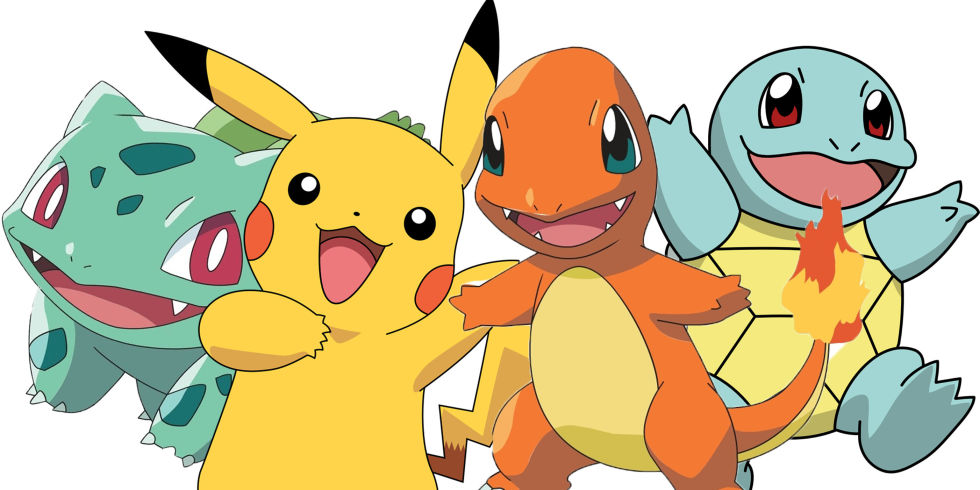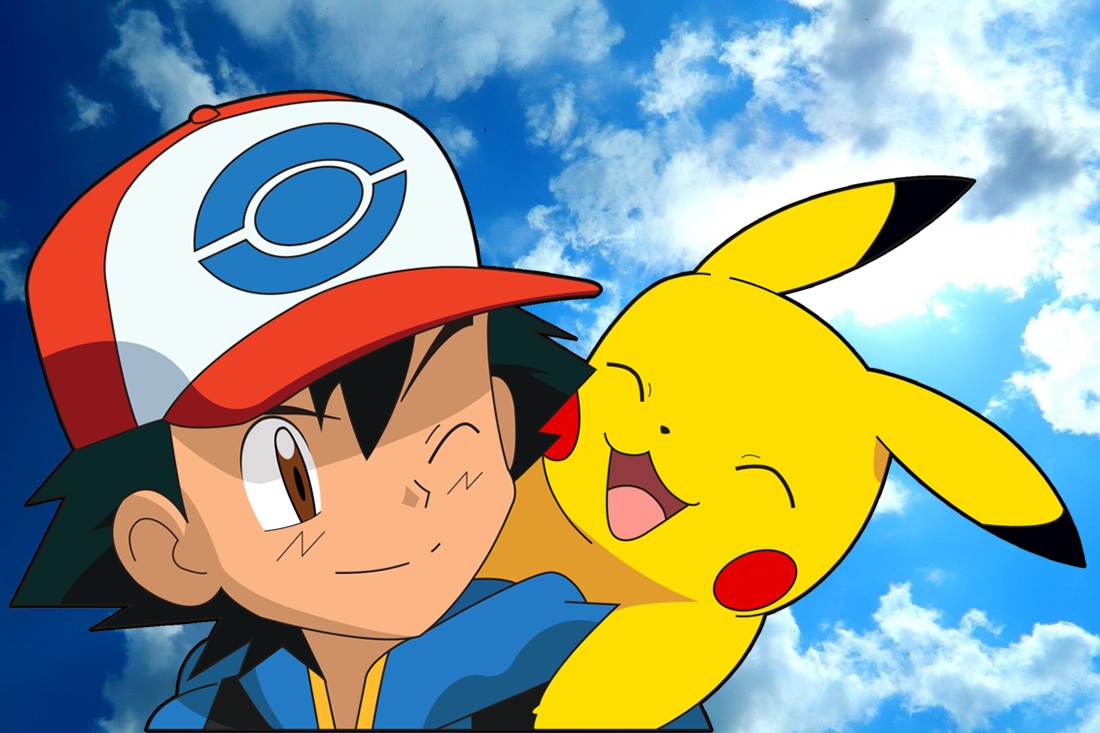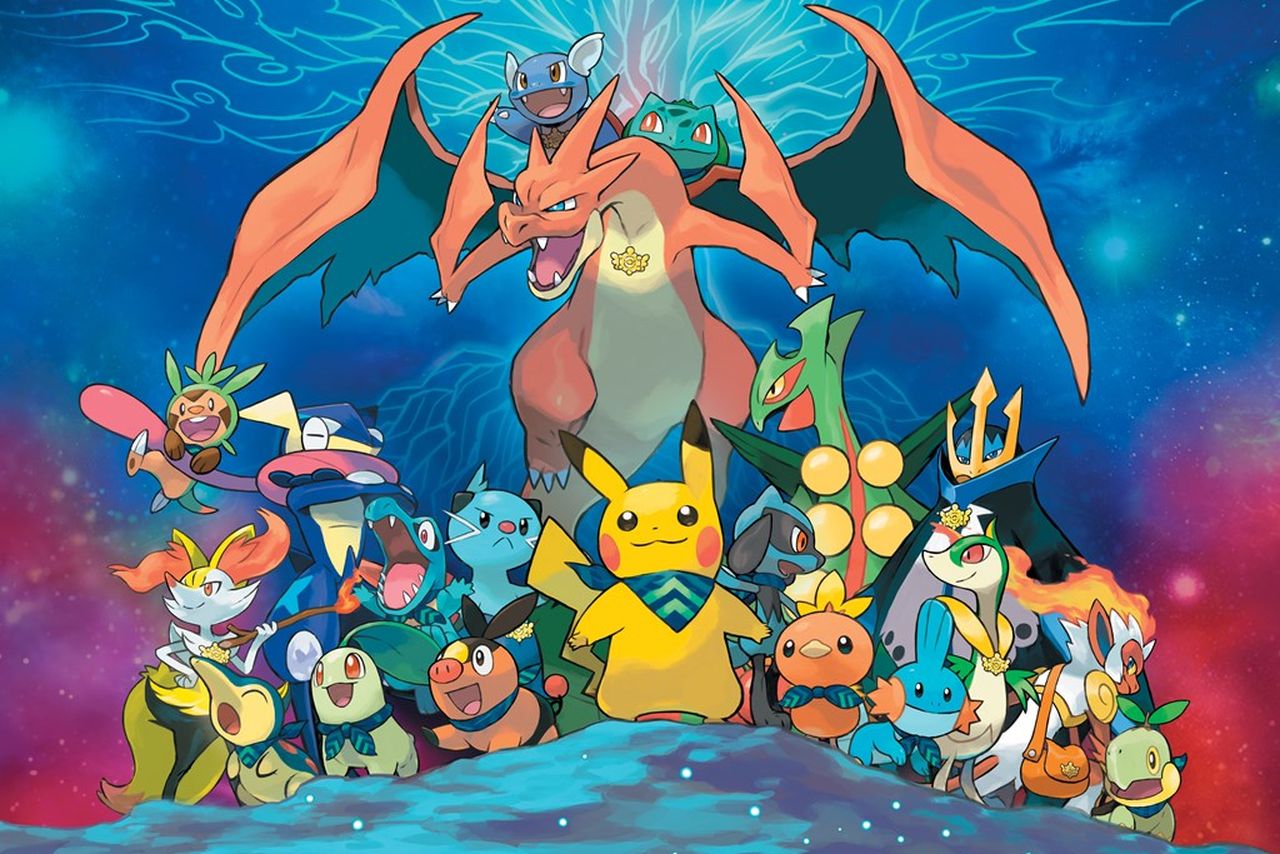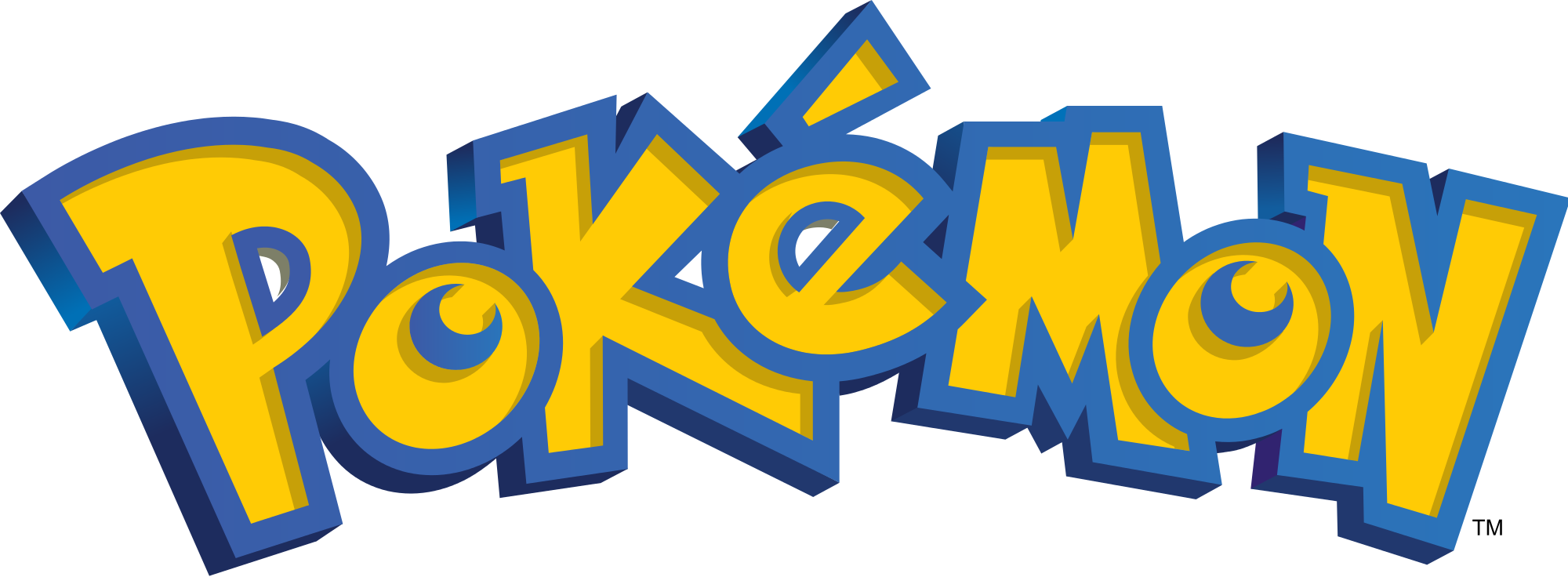 So, I’m not sure if you all have noticed or not, but we’ve been writing a lot about Pokemon recently. In the articles and comments of some of these stories, an old bugbear has come up several times. Who exactly owns Pokemon? How much of a benefit to Nintendo is the success of Pokemon Go (Free)? It’s a more complicated situation than it initially appears, and I’ll tell you up-front, there aren’t any publicly-available concrete answers. Still, I think I can offer some clarification for curious readers and confused Nintendo shareholders out there, so let’s go on a journey together. A Pokemon journey! Without any Pokemon. Sorry, they’re not in the budget.
So, I’m not sure if you all have noticed or not, but we’ve been writing a lot about Pokemon recently. In the articles and comments of some of these stories, an old bugbear has come up several times. Who exactly owns Pokemon? How much of a benefit to Nintendo is the success of Pokemon Go (Free)? It’s a more complicated situation than it initially appears, and I’ll tell you up-front, there aren’t any publicly-available concrete answers. Still, I think I can offer some clarification for curious readers and confused Nintendo shareholders out there, so let’s go on a journey together. A Pokemon journey! Without any Pokemon. Sorry, they’re not in the budget.
The Pokemon brand is generally associated with Nintendo, and it’s not hard to figure out why. The games, apart from a few mobile ventures, have only ever appeared on Nintendo hardware. Pokemon‘s characters have crossed over into other Nintendo titles from time to time, most notably Smash Bros. Oh, and the company’s name appears in the copyright notices of literally every Pokemon thing. That’s probably adding to that association. The association isn’t completely inaccurate. Nintendo is one of the owners, and in all likelihood, the one with the highest shares.

But wait, what about The Pokemon Company? They own the Pokemon IP and are in turn owned in near-equal shares by Nintendo and two other companies, right? So that means Nintendo’s slice is 33% and if Creatures and Game Freak (the other co-owners of The Pokemon Company) decide to take their ball and go to PlayStation, there’s nothing Nintendo can do about it, right? The Pokemon Company is probably the most confusing point of the whole arrangement, and it’s easily the source of most misconceptions about the ownership of the Pokemon franchise.
Let’s drop the big point first: The Pokemon Company does not own the Pokemon brand. They manage it, they license it, they publish/co-publish games and are directly involved in the development of any products carrying the license. They operate stores and help produce toys, card games, and Pokemon-branded yogurt. And they are indeed included among the copyright notices on every Pokemon product since the inception of the company at the turn of the millennium. But they do not own the brand, they merely act as its agent. They serve the brand in the best interests of the companies that do own it, and yes, that sometimes means doing things that don’t fit Nintendo’s plans like a glove.
Thus, the fact that Nintendo, Game Freak, and Creatures have near-equal shares in The Pokemon Company actually doesn’t tell us a thing about who really owns the Pokemon franchise and in what proportions. It’s the ultimate red herring in this discussion. To try to tease out the real answer, we have to go back to the early 1990s, when the first game was in development. It should be noted that the answer of who owns it is definitely known. Just go check the copyrights on every Pokemon product and you’ll see the three companies who share the IP: Nintendo, Game Freak, and Creatures. But as for the size of each company’s ownership, we’ll have to do some spit-balling. You ready, friends?

First, let’s get the easy bit out of the way. Nintendo is the full, sole owner of the Pokemon trademarks. The name, the logo, and indeed every character name down to Pikachu and Gary “Effing" Oak are Nintendo’s alone. This immediately strikes down the possibility of Pokemon going somewhere Nintendo really doesn’t want it to. Even if the ownership shook out in such a way that it was possible, the brand would have to go without any of its names. The yellow rat is okay, but calling him Pikachu is something only Nintendo can allow. This is pretty typical for most game publishers working with second or third parties. Nintendo had a similar arrangement with Rare at one point, though they ended up selling on those trademarks when Microsoft bought the developer.
We all know Nintendo, but let’s look at the other two players in this game. Game Freak is a third-party developer that started off as a fanzine publisher in Tokyo. At a certain point, they realized that they had the talents and finances to produce games, so they did just that. By the time they got to work on Pokemon, Game Freak had already released several games. They had also worked very closely with Nintendo in a second-party capacity on a couple of them. It was likely through this connection that Game Freak decided to work with Nintendo as a publisher on their latest game idea. Prior to this, they had worked with Namco, Sony, SEGA, and Victor Interactive as publishers. It’s unknown if they even approached any of them with the idea for Pokemon, though obviously SEGA wouldn’t have been on the table there.
In any case, they ended up working with Nintendo, and this is where the IP was first established. At this point, the IP would be jointly held by Nintendo and Game Freak, and while it’s not known what kind of split that looked like, I think it’s safe to assume Nintendo wouldn’t settle for less than a 50% share in such an arrangement. After all, Game Freak didn’t really have any kind of clout at the time, while Nintendo was arguably at one of their highest points. I think it’s likely that Nintendo’s share was greater than 50%, but let’s just roll along with the least charitable case for now.

Pokemon was a dream project for Game Freak founder Satoshi Tajiri, and even with Nintendo’s assistance as a publisher, the developer had apparently bitten off more than they could chew with the ambitious title. This is where Creatures, Inc. enters the picture. Creatures was a company that grew out of the remains of Ape, Inc., the developer of Earthbound Beginnings and Earthbound. Earthbound had had a particularly troubled development, and Ape’s head, Japanese writer Shigesato Itoi, wasn’t sure if he was going to make another game or not. Thus, Ape was dismantled and reformed as Creatures. The staff of the company was largely made up of ex-Nintendo employees, and Nintendo themselves invested in the developer. The original head of Creatures, Inc., Tsunekazu Ishihara, has run The Pokemon Company since its inception. Recently, it was made known that Nintendo’s current holdings in the company amount to 10%.
Game Freak was having a lot of trouble finishing development on Pokemon, and it was at a point where it looked like the game might not be finished while the Game Boy was still on store shelves. More importantly, Game Freak was starting to run low on cash. It was a very dire situation, to the point that Tajiri had stopped drawing a salary from the company so that he could afford to pay the employees. Ishihara, the head of Creatures, had a previous connection with Game Freak through producing their Super NES point-and-click puzzle game Mario & Wario. He’s also given a special thanks on Game Freak’s first game, Mendel Palace. Creatures offered to infuse some cash into Game Freak to get Pokemon to the finish line, and took a share of Game Freak’s ownership in the franchise in exchange. This proved to be a good deal.
So, taking all of this into account, we can get a vague picture of what Pokemon’s ownership looks like. Imagine Game Freak wanted to make a big, delicious pizza. Yes, I’m hungry. Anyway, Game Freak needs some money to make that pizza, so they promise half (or more) of the slices to Nintendo in exchange for some financial backing. Game Freak runs out of money before they finish making the amazing, mouth-watering pizza, so Nintendo’s nephew Creatures swings by and offers to give them the money to finish the pizza in exchange for some of Game Freak’s remaining slices. The pizza is finished, they all get their slices, and my analogy completely breaks down.

Anyway, the point is, Nintendo virtually has to have a bigger piece than anyone here. It’s very possible that their share adds up to the same or more than the other two put together. They also have a small ownership in one of the other two companies involved. Finally, they are the sole owner of all of the relevant trademarks, including names and logos. So while The Pokemon Company apparently operates more or less autonomously, and Nintendo isn’t the sole owner of the brand, they are almost certainly the majority owner of Pokemon, and likely by quite a significant margin. That’s probably not enough to double the value of the company on the stock market, but it’s clear that Nintendo benefits big from any Pokemon success, and Pokemon Go isn’t likely to be an exception.